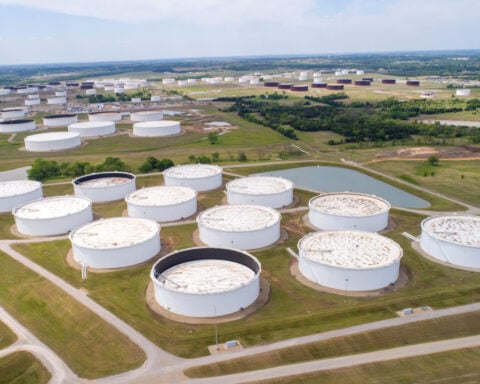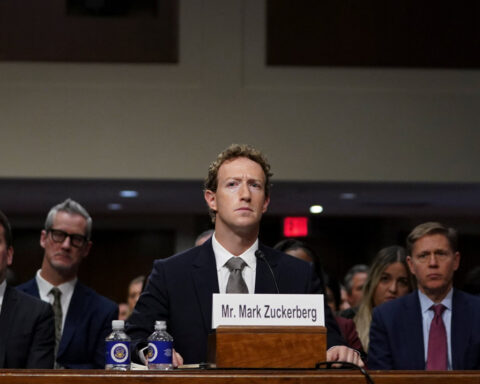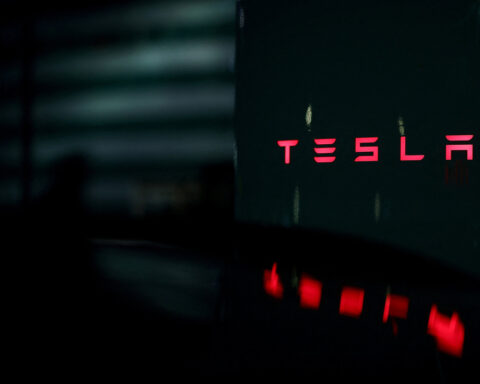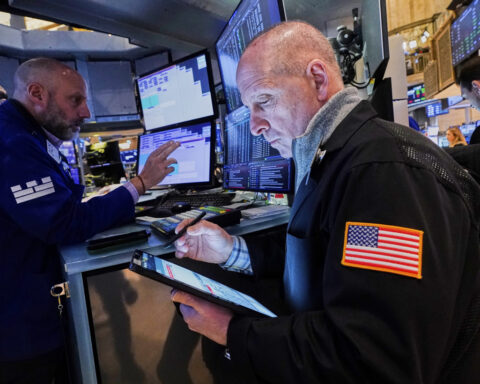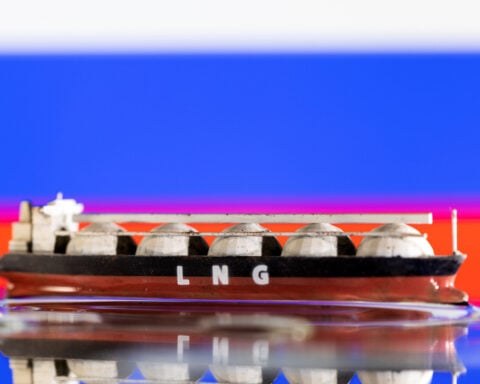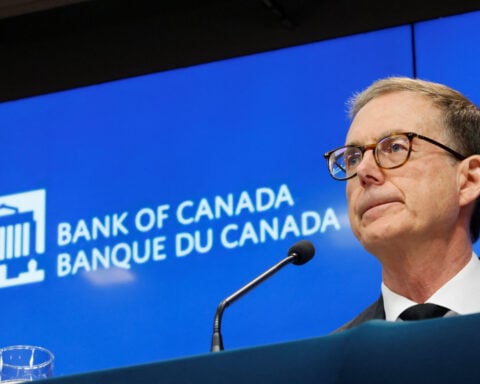New York (CNN) — Anxieties about an artificial intelligence bubble on Wall Street are as old as ChatGPT itself. (Which is to say, those anxieties are firmly in their toddler years.) Is AI the new tulip mania/dot-com boom/collateralized debt obligation? Or is all the hype about the hype itself … overhyped?
It depends (of course). The AI enthusiasm is certainly frothy, to borrow a bit of analyst jargon. A lot of smart people have found themselves on opposing sides of an increasingly partisan debate about the value of generative AI — the tech underlying chatbots like OpenAI’s ChatGPT, Google’s Gemini and, yes, even Apple’s hilariously useless text summaries.
Semantics around the word “bubble” aside, it’s becoming clear that Wall Street may have gone too hard in funneling money toward the shiny new object out of Silicon Valley over the last few years.
And if the technology’s shortcomings and questionable consumer applications weren’t enough to bring down the temperature? Just wait until tech investors are smothered by the ultimate wet blanket: the uncharted territory of Trump tariffs.
‘Trough of Disillusionment’
The first quarter of this year has been a bruiser for tech stocks, dragged down by broader market uncertainty from tariffs. But there are specific concerns about AI, too — starting with the DeepSeek upheaval in January and rounding out with an absolute dud of an IPO last week from CoreWeave, an AI cloud computing startup backed by Wall Street darling Nvidia, which itself has shed $1 trillion in market value.
The Nasdaq 100 index, which is disproportionately focused on tech, is down 10.5% this year — more than double the slump of the broader S&P 500.
“We are entering the Trough of Disillusionment,” D.A. Davidson analyst Gil Luria said, referring to the phase of the Gartner hype cycle that follows a Peak of Inflated Expectations. “That doesn’t mean AI is not going to happen … It doesn’t mean it’s not going to have a huge impact, as promised — it’s just going to take longer.”
Big Tech is spending billions to improve their AI capabilities and build out giant data centers that companies say will be necessary to power future projects. But Wall Street has been growing increasingly impatient — so far, there’s been a lot of spending and not a lot of clarity on, like, how any of it will ever turn into revenue.
Recession fears hit AI
The AI “bubble” discourse has revved up in recent weeks — partly because of legitimate red flags in the industry, and partly because of the whole “are we careening into a recession” chitter-chatter.
Last week, Alibaba Group Chairman Joe Tsai caused a stir when he told an investment summit in Hong Kong that he sees “the beginning of some kind of bubble” around data center construction. Meanwhile, analysts from TD Cowen said that Microsoft has scrapped some of its data center projects in a sign the company is worried about future demand.
All of that has rattled investors at a time when they’ve got a lot more than just AI to worry about.
The consumer engine that has kept the US out of a recession since 2020 is showing signs of strain. Inflation has ticked higher. People are reining in spending as the labor market looks less certain and tariff uncertainty paralyzes businesses.
“We had been in ‘unlimited investment’ mode because we were in a very strong economy that allowed these large companies to bet the farm on AI,” Luria said. “They’ve been investing well in excess of the demand for AI, and that’s something that you may want to do in a very strong economy. You may not want to do as much in a weakening economy.”
Pretty much everyone who isn’t President Donald Trump is flying blind ahead of his planned “Liberation Day” tariff announcement Wednesday. Economists put the odds of a US recession this year at basically 50/50.
Even AI cheerleaders have to adjust. And that tempering of enthusiasm has helped create a slow leak, rather than a pop, of the AI bubble.
Luria emphasized that “the vision for AI will remain unchanged even if the level of investment diminishes” because so much money has already gone into the various companies, large and small, pursuing some marketable version of what has been a largely academic project so far.
Whatever that thing turns out to be, we’re all going to have to wait a while longer to see it. That’s because it’s going to take time for the global economy to adjust to whatever new reality awaits it after the April 2 tariffs.
“The bubble discourse might not matter if we fall into a Trump recession,” wrote Wedbush analyst Dan Ives in a research note Tuesday. “In covering tech stocks and markets the last 25 years, we have seen some ‘fork in the road’ political moments that have created major uncertainty for the markets … and this Trump tariff announcement is up at the top of that list.”
The-CNN-Wire
™ & © 2025 Cable News Network, Inc., a Warner Bros. Discovery Company. All rights reserved.

 Trump has begun another trade war. Here's a timeline of how we got here
Trump has begun another trade war. Here's a timeline of how we got here
 Canada's leader laments lost friendship with US in town that sheltered stranded Americans after 9/11
Canada's leader laments lost friendship with US in town that sheltered stranded Americans after 9/11
 Chinese EV giant BYD's fourth-quarter profit leaps 73%
Chinese EV giant BYD's fourth-quarter profit leaps 73%
 You're an American in another land? Prepare to talk about the why and how of Trump 2.0
You're an American in another land? Prepare to talk about the why and how of Trump 2.0
 Chalk talk: Star power, top teams and No. 5 seeds headline the women's March Madness Sweet 16
Chalk talk: Star power, top teams and No. 5 seeds headline the women's March Madness Sweet 16
 Purdue returns to Sweet 16 with 76-62 win over McNeese in March Madness
Purdue returns to Sweet 16 with 76-62 win over McNeese in March Madness
